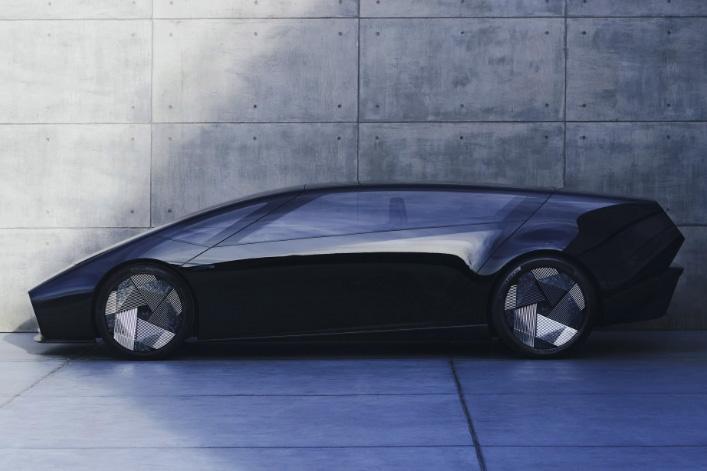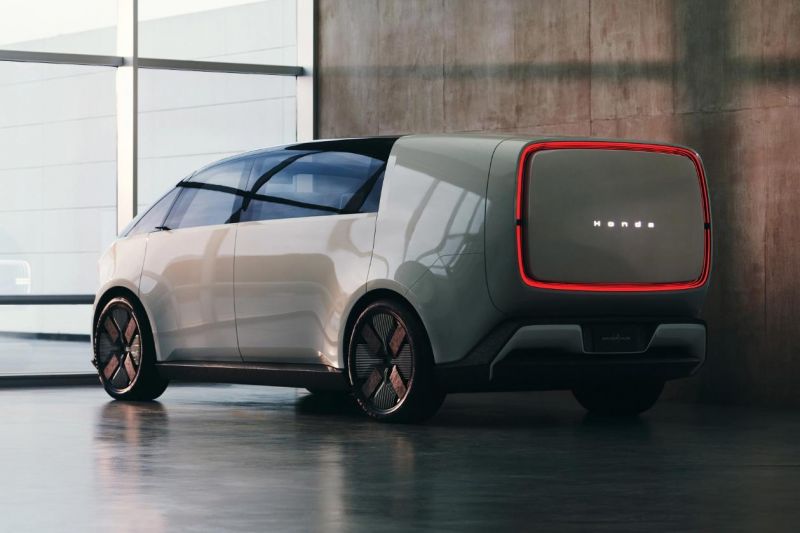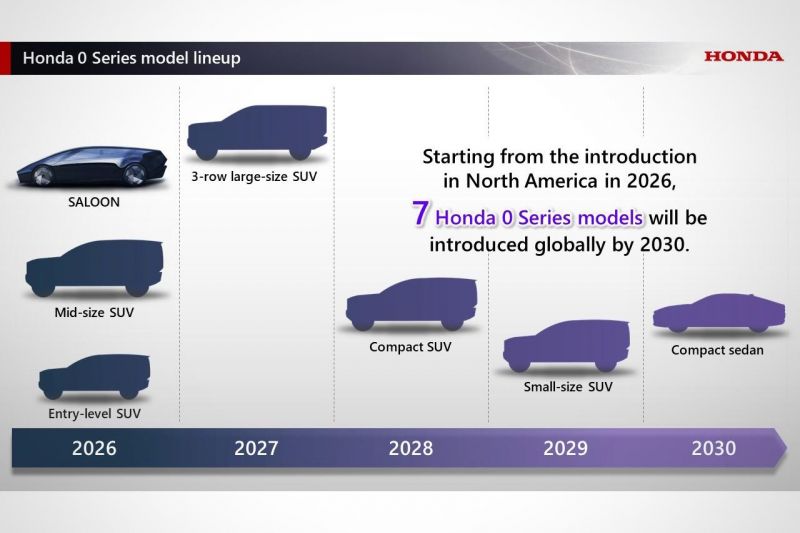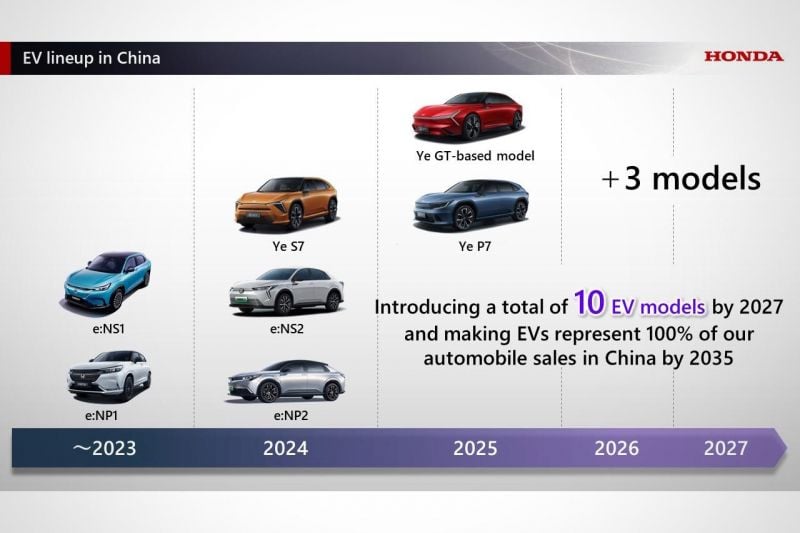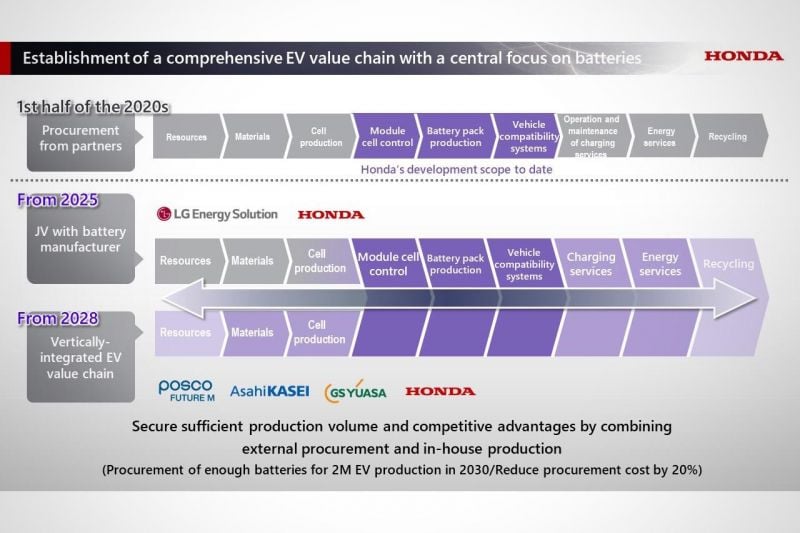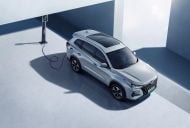Japanese carmaker Honda has committed 10 trillion yen ($96.25 billion) towards electric vehicle (EV) development until early 2032, while remaining firm on its zero-emissions goals.
From now through the 2031 Japanese fiscal year (which concludes in March 2032), Honda will invest the significant sum in EV and hydrogen fuel cell vehicle (FCEV) development, as it aims for the two powertrains to account for 100 per cent of its global sales by 2040.
The 2040 target was announced three years ago when EV sales were on a seemingly endless upward trajectory, however demand for solely battery-powered vehicles has been cooling globally in recent months.
While this has led to other carmakers walking back their targets and putting more emphasis on hybrids, Honda has reiterated it expects EVs and FCEVs to account for 40 per cent of its global sales by 2030, at which point it aims to have capacity to build approximately two million EVs per year.
Toshihiro Mibe, Honda’s global CEO, said the brand will ramp up its EV rollout throughout the rest of this decade.
“The environment surrounding automobile electrification is undergoing dramatic changes, and in some regions, the sense of a slowdown in EV market growth is gaining attention,” Mibe-san said.
“Looking at the trend from a longer-term perspective, Honda is confident that the EV shift will continue to proceed steadily.
“Without getting too caught up in the current changes in the situation, Honda must look ahead to the period of EV popularisation, which will begin in the second half of the 2020s and build a strong EV brand and a strong EV business from a medium- to long-term perspective.”
To do this, Honda will rely on its upcoming 0 Series EVs to increase its share in the market.
Unveiled at the Consumer Electronics Show in January, the 0 Series concepts – named Saloon and Space-Hub – are planned to influence production models of similar designs, with an electric sedan due to debut first in 2026 as the flagship.
It will initially roll out in North America before becoming available in Japan, Asia, Europe, Africa, the Middle East, and South America.
Honda Australia has ruled out a local launch of the 0 Series models for now, most recently saying its first EV is due in showrooms before 2028 – though without detailing what models are on the cards.
Honda will also launch mid-sized and entry-level SUVs in 2026, with a three-row SUV, compact SUV, small SUV and compact sedan to come in the following years.
The Japanese carmaker is targeting more than 480km of driving range from its 0 Series EVs, achieving this figure not only by reducing the overall body weight but also by leaning on its Formula One experience to develop lighter electric motors.
Honda reentered Formula One as an engine supplier in 2015, with its 1.6-litre turbocharged V6 engine conforming to the hybrid-era regulations still in place today.
Following a rocky introduction, Honda’s engines have since won three world championships, while continuing to power the Red Bull machine which has been the car to beat this season.
Honda is also targeting the launch of at least 10 EVs in China by 2027 on its way to reaching 100 per cent electric-only sales in the region by 2035.
It has already revealed or launched seven of its 10 models, with another three to follow.
As recently reported, Honda’s electric rollout was given a boost with an investment of CAD$15 billion (A$16.8 billion) earmarked for an EV assembly and battery plant in Ontario, Canada for the North American market.
Though its joint venture partner wasn’t announced at the time, it has since detailed Yuasa will co-develop the battery, with cathode materials supplied by POSCO Future M, and separators from Asahi Kasei.
With these partnerships in mind, by 2030 Honda wants the current cost of North American battery production to be reduced by more than 20 per cent compared to current levels.
MORE: Everything Honda
MORE: When to expect Honda’s first EVs in Australia
MORE: Honda will sell only electric and fuel cell cars by 2040
MORE: Honda previews new 0 Series electric cars with wild-looking concepts





